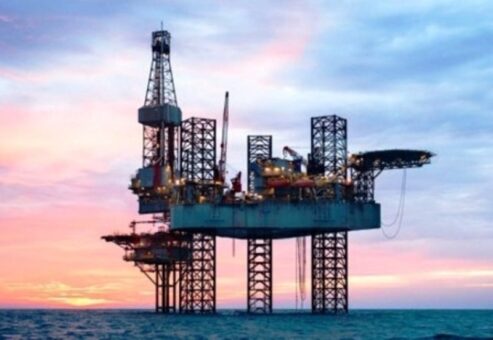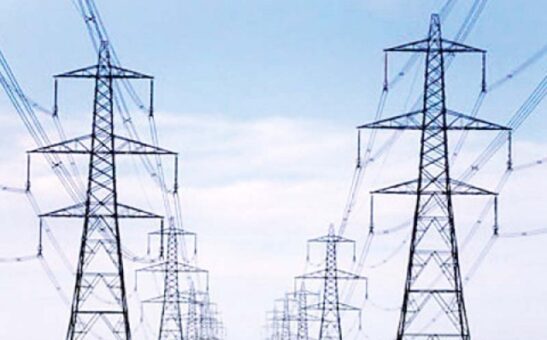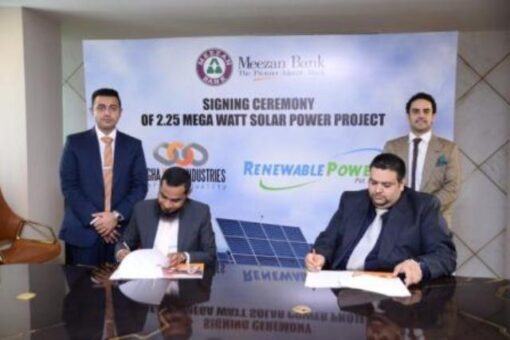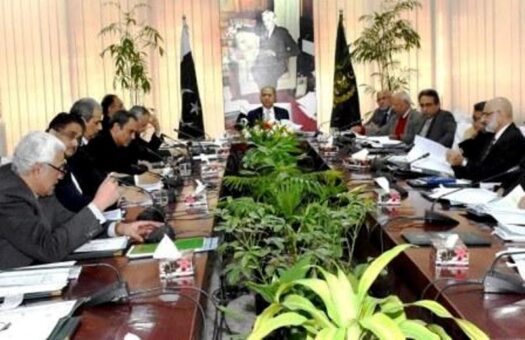ISLAMABAD: The Economic Coordination Committee (ECC) of the cabinet on Wednesday approved the renewal agreement of gas supply between Sui Southern Gas Company (SSGC) and Fauji Fertilizer Bin Qasim Limited.
Federal Minister for Finance and Revenue, Dr. Abdul Hafeez Shaikh, chaired the meeting of the ECC of the Cabinet.
Federal Minister for Planning, Development and Special Initiatives Asad Umar, Federal Minister for Interior Sheikh Rasheed Ahmad, Minister for Privatization Muhammad Mian Soomro, Adviser to the PM on Institutional Reforms and Austerity Dr. Ishrat Hussain, SAPM on Revenue Dr. Waqar Masood, SAPM on Power Tabish Gauhar, SAPM on Petroleum Nadeem Babar and Federal Minister for Energy Omar Ayub Khan participated in the meeting.
Petroleum Division placed a summary before ECC regarding renewal of Gas supply Agreement (GAS) between Sui Southern Gas Company Limited and Fauji Fertilizer Bin Qasim Limited.
After detailed discussion, the ECC approved with a condition that renewal would be allowed on “as and when available basis” for a period of 05 years. SSGCL may restore the gas supplies to M/S Fauji Fertilizer till December, 2021 or until a uniform rate for the whole fertilizer sector is formulated after rationalization of tariffs (whichever is earlier).
The ECC considered and approved another summary by the Petroleum Division for re-allocation of gas from Saqib-1A Well located in District Ghotki, Sindh Province to M/S Sui Southern Gas Company Limited from its previous allocation to SNGPL (as approved earlier by the ECC dated 06-10-2009). The price of gas will be as per the applicable Petroleum policy.
Petroleum Division also moved a summary for removal of Dividend Distribution cap on Mari Gas Company Limited (MPCL) under Gas Pricing Agreement as the company is being considered for privatization.
After due deliberation, the ECC allowed that the dividend distribution cap may be removed to ensure that the divestment transaction generates optimum sale proceeds for the Government.
The Committee further decided that MPCL would ensure dividend distribution in accordance with the Provisions of Companies Act, 2017 and the Companies (Distribution of Dividends) Regulations, 2017.
On the recommendation of the Ministry of Housing and Works, the ECC allowed the Ministry to utilize its own funds equal to Rs. 377.21 million for renewal of lease of Garden West (Pakistan Quarters), Karachi.
The following Technical Supplementary Grants (TSGs) were approved by the ECC:
a) Rs. 141.308 million to Ministry of Information and Broadcasting for an expenditure incurred on media campaigns to create awareness among public during COVID-19 pandemic.
b) Rs. 9.025 million to Ministry of Information and Broadcasting for a media campaign on occasion of Kashmir Solidarity Day – 05 Feb. 2021.
c) Rs. 5 million for purchase of spare parts for helicopter maintenance by HQs Pakistan Rangers (Punjab).
d) Rs. 25 million for purchase of spare parts for helicopter maintenance by HQs Frontier Corps Balochistan (South).
e) Rs. 10 million for repair and maintenance of helicopter by HQs Frontier Corps KP (South), D.I.Khan.





